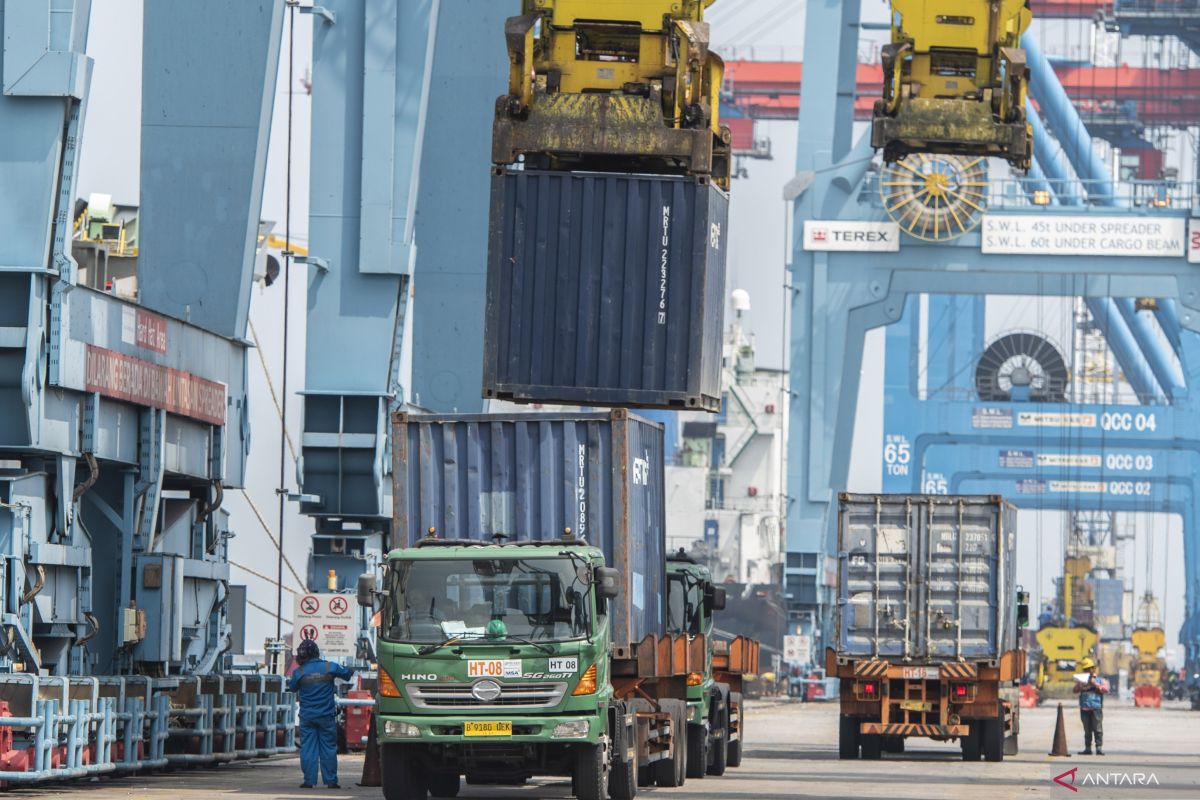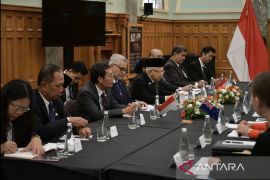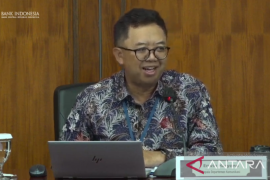…the 2023 balance of trade showed the national economy’s external resilience amid (a) global risks increase, including the moderation of commodity prices and the economic slowdown of our main trading partner countries…Jakarta (ANTARA) - Head of the Finance Ministry’s Fiscal Policy Agency (BKF), Febrio Kacaribu, on Tuesday said that the 2023 trade balance surplus reflects the resilience of Indonesia’s economy amid a global economic slowdown.
“Although it recorded a decrease compared to 2022, the 2023 balance of trade showed the national economy’s external resilience amid (a) global risks increase, including the moderation of commodity prices and the economic slowdown of our main trading partner countries, such as China,” he expounded here.
In total, Indonesia’s trade balance recorded a surplus of US$36.93 billion in 2023.
The value of Indonesia’s exports was recorded at US$258.82 billion, lower than the previous year’s achievement of US$290.90 billion.
Despite a nominal decline in exports, in terms of volume, Indonesia’s exports were up 8.55 percent year-on-year (yoy) in 2023. The dip in the value of exports was in line with the moderation of prices for Indonesia’s top commodities, such as palm oil and coal.
The economic slowdown in its main trading partner countries also played a role in Indonesia’s export value slowdown.
In 2023, Indonesia’s exports were still concentrated in China (25.66 percent), the United States (9.57 percent), and India (8.35 percent).
The share of Indonesia’s exports to ASEAN and the European Union stood at 18.35 percent and 6.78 percent, respectively, of the total exports.
Meanwhile, Indonesia’s imports in 2023 reached US$221.89 billion, a decline of 6.55 percent yoy compared to 2022.
The largest contributor to the slowdown in imports were machinery/electrical equipment and their parts, while machinery/mechanical equipment and their parts contributed to the increase in imports.
Similar to exports, Indonesia’s import volume recorded a positive growth of 8.04 percent yoy, in keeping with strong domestic demand.
Sector-wise, the imports of capital goods and consumer goods clocked positive growth, while imports of raw materials experienced a decline.
Indonesia’s biggest imports were still from China and Japan, with a respective share of 33.42 percent and 8.84 percent of the total imports.
According to Kacaribu, global economic activities are still facing risks and uncertainties in 2024, as reflected in the economic growth slowdown forecast by many international institutions, followed by a moderation in commodity prices.
This will directly impact Indonesia’s trade activities this year.
“The government will monitor the impacts of a global (economic) slowdown on national exports, as well as prepare anticipatory measures through promoting the sustainability of downstream natural resources, increasing the competitiveness of national export products, and diversifying main trading partner countries,” Kacaribu informed.
Related news: Indonesia records trade surpluses for 44 successive months: BPS
Related news: Trade balance surplus supports external economic resilience: BI
Related news: IPEF expected to strengthen partner countries' economic resilience
Translator: Yuni Arisandy Sinaga
Editor: Azis Kurmala
Copyright © ANTARA 2024












